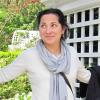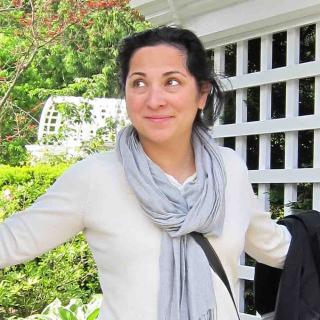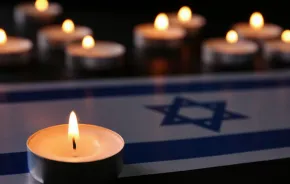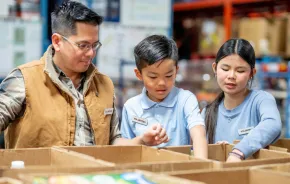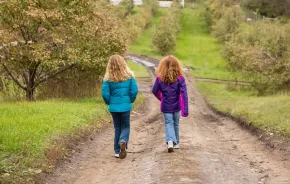
In 2013, a small parent support group dedicated to multicultural families and families of color launched in South Seattle. Through the group, parents of babies and young children connected, arranged playdates and found resources.
But Families of Color Seattle wasn’t destined to stop there. There were so many urgent needs; families of color wanted more.
Since its inception, the nonprofit has created a play space and a cultural arts program that includes a new series of unprecedented community dialogues about race and families. Families of Color Seattle (FOCS) serves more than 350 families and is growing quickly with its mission to “build a strong community for families of color with parenting programs, resource sharing and fostering meaningful connections.”
This mandate could not be any timelier, given the seemingly unending stream of racially charged incidents that have erupted nationally and locally in recent years. From police brutality toward people of color to patterns of increased suspensions and harsher punishment for schoolchildren of color, local families are navigating racial bias all around them.
The impact of bias can invade community and family spaces, from the hospital birthing room to the private dinner table.
“Parents need to talk about race with their kids,” says Columbia City Church of Hope pastor Darla DeFrance. “We don’t leave our kids to figure out math or reading or swimming on their own. Race is just as important, and we need to lead and guide them, even if we’re not that good at it ourselves.”
But while racism in the past was unmistakable, modern racism isn’t as easy to pin down. “Today’s children are inundated with the colorblind message of ‘skin color doesn’t matter.’ [But] the impact of racism doesn’t change over time ― racial exclusion, othering, discrimination [were and still are] hurtful,” says Onnie Rogers, Ph.D., and professor at the University of Washington’s College of Education and Institute for Learning & Brain Sciences (I-LABS).
Enter FOCS, one of the few organizations solely dedicated to addressing how children and families of color are affected by racism in Seattle. As it has grown, FOCS has increasingly moved toward a focus on advocacy for racial justice on a community-wide scale. After winning a City of Seattle Department of Neighborhoods grant, FOCS introduced a special series of five community dialogues about race and family in late 2015.
Each event tackles a different theme, featuring keynote speakers, spoken-word poetry readings, parent testimonials, updates on community efforts and opportunities to talk about experiences in a safe, shared space. Food and child care are also provided. (See sidebar for details on how to register for and attend the final event in the series.) The core message of the dialogues is that racism hurts families, so families need tools to become resilient and thrive.
FOCS organizers hope the series creates effective allies against racism, inspires ideas about dismantling racism and bridges gaps in understanding for the public at large.
Talking with kids about a topic as complex as racism can feel daunting and nebulous. But that makes it even more important.
Starting a dialogue
On a rainy Saturday last October, I attended the first dialogue, “Talking Race, Identity and Racism,” at Seattle Girls School in South Seattle. What I witnessed, and the personal introspection it inspired, surprised me. Kicking off the program, 16-year-old Carlynn Newhouse of Youth Speaks Seattle riveted a full-capacity crowd with an electrifying original poem, followed by an informative presentation about efforts to fight for social justice by Youth Undoing Institutional Racism (YUIR). Then, author and activist Sharon H. Chang delivered an insightful and deeply relatable keynote talk about how society tends to put people in race boxes. These preconceptions, she said, shape what we expect people to be like and what we believe they should do.
“By the late 18th century, there were approximately five racial categories of people — white, Asian, Latino/a, Pacific Islander, native, black — and they are arranged in a hierarchy, with whites at the top, blacks at the bottom, and everyone else vying for middling positions between. There is no space for mixedness in this ideology,” Chang told the crowd. She noted that mixed-race people are usually either shoved into preexisting categories or ignored altogether.
With identity as the main focus, the event brought up some things for me. As a mixed-race Asian myself, I understand that sense of not fitting into any one “box.” After years of self-examination, I have made peace with who I am. But it’s often been a lonely experience, one that resulted in me deciding what my identity would be, rather than people telling me what it was.
A recent column in The New York Times by Bonnie Tsui captures this reframing of racial identity discussions. Being of mixed race can often feel like its own unique “category” or race. It’s a conflicting exercise to transcend categorization while having the burden of explaining all my parts if asked, “What are you?” But for me, straddling multiple, distinct groups of people deeply internalized the concept of coexistence. Seeing my Italian grandmother, Russian Jewish grandfather and Japanese grandparents at one table for Christmas Eve dinner as a child galvanized the ideas that everyone could be together and no one was lesser or greater.
Even with all of this in my background, an eye-opening takeaway of the FOCS event was that I needed to honestly examine what personal snap judgments and assumptions I make about others and whether I’m doing my best to approach all people with an open mind and heart. Every single person — whites, people of color or mixed-race people — can play a role in either propagating racial assumptions or actively overcoming them.
The FOCS community event concluded with some heartfelt testimonies of local parents, which revealed a deep indignation about the treatment of nonwhite people and the issues they face. One of those parent testimonies was from Teddy McGlynn-Wright, who wrote for this magazine about what it’s like to be a modern dad in a piece called “Redefining Fatherhood." As an activist and organizational manager for Seattle’s Youth Violence Prevention Initiative, McGlynn-Wright says, “I’ve seen families left out of important conversations like this before. But there’s a different depth, sharpness and level of commitment from the parent demographic” engaging in conversations like the FOCS dialogues.
A Leschi resident, McGlynn-Wright is a black dad of two young kids who believes the urgency to make the world better for our children is what is currently motivating parents to break through uncomfortable insecurities and talk about racism in a real way.
Other parents at the first dialogue echoed this sentiment. Kay Dumlao Doherty of Magnolia, a Filipina mom of two, felt the event brought together people who want a better world for their kids, particularly around issues of race, diversity and equity.
“I wasn’t able to be as involved as I had once been in community activism,” Doherty says. “[But] the event gave me an opportunity to connect once again with grassroots organizing and the community. I came away from the event very inspired to keep fighting for what I knew was right.”
Stephanie Jones Peguero, a black Korean mom of two living in Central Seattle, recognized a commonality with other parents of color at the event. “I was able to connect with the stories that the presenters shared that were similar to my own story of race, identity and racism, as well as thinking through how I want to raise my children in this world,” she says.
These opinions reflect a move by many families, organizations and communities to change the narrative about race. “The dialogue events have had a great impact in the community for parents to gather, learn and engage on some issues most affecting children of color in Seattle,” says Amy HyunAh Pak, FOCS executive director. In the past few months, new PTA groups have emerged because of the dialogues. Parents are now advocating and mobilizing to engage their school administrations for equity and antibias programs. FOCS has been asked to provide trainings and consultations for some public and private schools around the Puget Sound region.
Local families’ needs and experiences are fueling the growth of such programs, and other organizations in the region are partnering to further the conversation and build strength in numbers. The FOCS race dialogues, which include topics such as “Anti-Bias Education and Schools” (last December), “Antiracist Birthing & Reproductive Justice” (January 2016) and “Transracial Adoption Experiences” (Feb. 27), have been made possible partially through a fellowship grant from Rainier Valley Corps, which enabled FOCS to hire staff to manage programming and operations. With the team expanding, FOCS moved administrative offices to the Mt. Baker Lofts in the Mount Baker light rail station and formed a partnership with Washington state’s first Vietnamese bilingual preschool, Hoa Mai Vietnamese Bilingual Preschool. Hoa Mai will be the new site for FOCSArts, formerly known as Cornerstone Café. Starting in early 2016, families can look forward to West African dance and music as the first offering in the new Hoa Mai space (see box for details). Also, West African drumming, Hawaiian ukulele and Spanish music classes are planned for later in 2016.
Families can also find parent support groups for waddlers, newborns and moms of two or more children as well as monthly pop-up playdates in North and South Seattle parks. This year, FOCS plans to add new groups for black moms and QFOCS (a LGBT group).
Another ally to fight racism
Many advocates of opening the dialogue about race and racism say there’s an urgency to engage in understanding and change with this new generation.
“Unfortunately, pessimism about the future of race relations in the United States abounds,” explains Lee M. Miringoff, Ph.D., director of the Marist Institute for Public Opinion. “A majority of nonwhite residents, 54 percent, believes there will always be a lot of racial discrimination in [this] nation, and that figure has changed little in decades.”
Another family-focused antiracism effort working toward opening the dialogue and creating change is being championed by the Columbia City Church of Hope in South Seattle and led by its pastor, DeFrance. The church recently hosted two workshops focused on kids and race called “Beyond Colorblindness.”
DeFrance and her team want all parents and educators to look closely at how bias infiltrates our everyday lives and experiences. They hope to give parents practical ideas about ways to recognize and disrupt narratives that privilege whiteness. “Superheroes, princess stories — even train and animal stories — often presume that whiteness is good and anything else is ‘other,’” DeFrance says.
To be sure, talking with kids about a topic as complex as racism can feel daunting and nebulous. But that makes it even more important. Parents can approach it by starting to examine their own experiences with racism, and then consider the values of fairness and social justice.
“A lot of white parents are reluctant to say anything about race, which leaves a culture that minimizes the impact of race even as it continues to teach kids that whiteness is the norm. Remaining silent is one of the worst things we can do,” DeFrance says.
The unique challenges for families of color remind us that we all have to actively acknowledge and talk about the problems of racism. By recognizing this struggle and getting to the root of the parts we each play, there’s hope for a less racialized, more harmonious future for our kids.



